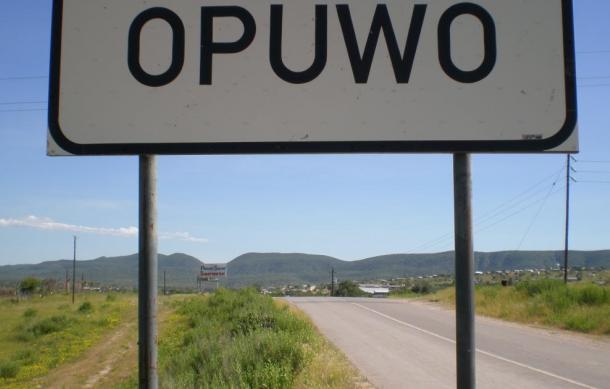
33 years after independence, the Kunene Region remains one of the most underdeveloped regions in the country, and its administrative leadership says it is doing all it can with the available resources to change the dire status quo.
Scores of people wandering the dusty streets of the Kunene regional capital, Opuwo, paint the picture of a public holiday, but it remains a normal working day.
The town of Opuwo has many government offices, though few private firms are visible, and residents wandering the streets are predominantly unemployed.
The nbc News team visited Opuwo to observe and compile stories on how the region has progressed 32 years after independence.
From the onset, getting a hold of the regional leadership and those elected to head the local authority in the region's capital was challenging.
The Opuwo town mayor, Rosa Tjeundo, had promised to return the nbc's calls, and regional governor Marius Sheya delegated the task to the regional planner.
With no political leadership available to speak to us, the news team consulted the administrator, Emmanuel Nafale, who is in charge of planning for the region and was the acting regional CEO at the time of the news team's visit to the region.
Nafele agrees that the Kunene Region continues to face serious developmental and social-economic challenges, three decades after independence.
He was quick to point out, though, that the region has seen notable progress, but not at the pace administrators would have wanted.
The reason for the slow development, he says, is funding.
The Kunene Region boasts seven constituencies, and all of them have the facilities to serve their people, which Nafale notes as a notable achievement.
"That is one of our key developments that came so that people can take their needs to their leaders; you know, the communal land is administered by the Traditional Authority on behalf of the government; we have also seen the construction of offices for the Traditional Authority where the leaders are able to cater for their subjects," said Nafele.
He accuses the political leadership of not being in touch with those who put them in power and of simply not doing enough to address issues and find lasting solutions.
The Kunene Region has a fairly large number of people who are characterized as marginalized.
The Ovazemba and some communities of the San people call this region home, and Nafale suggests these groups require special attention.
"Our communities go to school. Our communities have access to basic amenities. Our people are trained. But these people are still far from that. Talkin
g about school, they just do not understand it. Having the facilities at their disposal, they need special attention. First, we need to create awareness among these communities so that they appreciate the need for their children to go to school."
Mbungha's list of troubles is bottomless.
The state of the region saddens him, he says, describing economic and socio-economic development in the region as poor.
"We are almost 33 years of independence, but we are suffering; people are hungry; people are jobless; we do not have network coverage; no proper road network; not enough water; not enough schools; no clinics."
Tjakazapi Mbungha is a community activist based in Opuwo.





